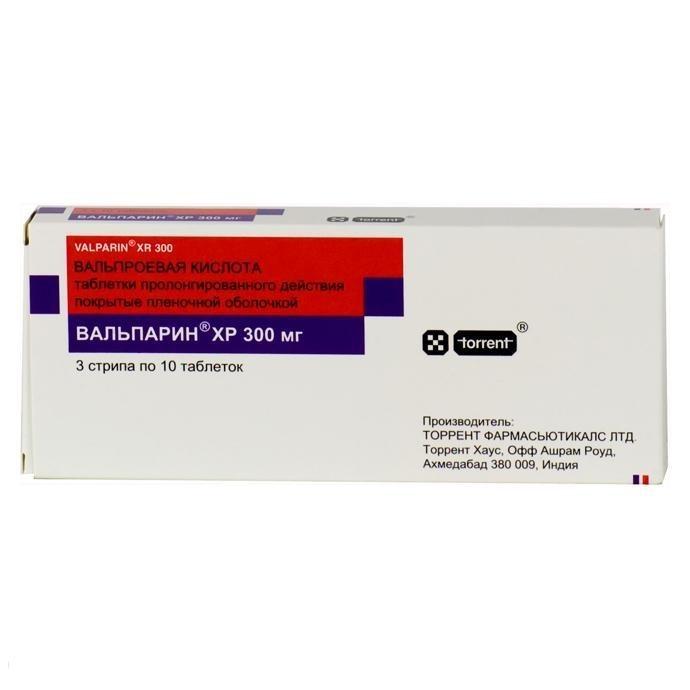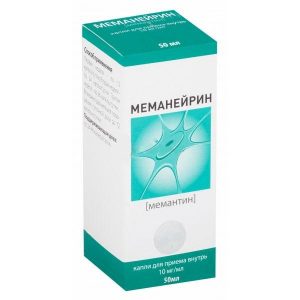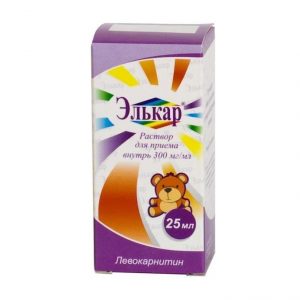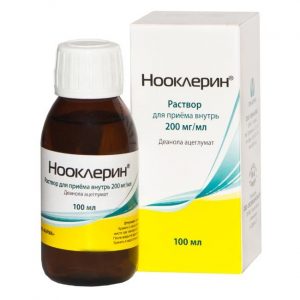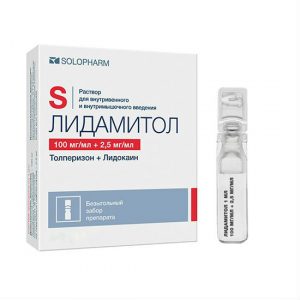Description
Latin name
Valparine XR
release form
sustained-release tablets, white-coated, round, double.
Packing
100 pcs
Pharmacological action
Anticonvulsant. Sodium valproate increases the content of gamma-aminobutyric acid (GABA) in the brain, which accordingly increases the content of GABA in postsynaptic neurons. In addition, sodium valproate affects the transfer of potassium ions across the membranes of neurons. As a result, there is a suppression of the development, as well as the spread of epileptic excitation along neurons.
Sodium valproate has anticonvulsant activity in various types of epilepsy in humans. The drug does not have pronounced hypnotic and sedative effects, and also does not have a depressing effect on the respiratory center. Sodium valproate does not have a negative effect on blood pressure, heart rate, kidney function and body temperature.
Pharmacokinetics
Absorption
After ingestion of tablets with controlled release of plasma Cmax is achieved within 2-8 hours. The bioavailability of the drug is about 100%.
Therapeutic efficacy is manifested with a concentration of valproic acid in blood plasma of 40-100 mg / l. At the same time, the pharmacological and therapeutic effects of this drug with controlled release do not always depend on its concentration in plasma.
Distribution of
Binding to blood plasma proteins is 80-90%.
Vd is 0.2 L / kg.
Metabolism and excretion
Metabolized in the liver and excreted in the urine. Presystemic metabolism is not observed. T1 / 2 is approximately 8-20 hours.
Pharmacokinetics in special clinical cases of
In children, T1 / 2 decreases.
Indications
Treatment of generalized or partial epilepsy, especially with the following types of seizures: abscesses
myoclonic
tonic-clonic
atonic.
Partial epilepsy: simple or combined seizures
secondary generalized seizures.
Specific Syndromes (Vesta, Lennox-Gastaut).
Use during pregnancy and lactation
Prescribing during pregnancy is only possible when the intended benefit to the mother outweighs the potential risk to the fetus. In the case of taking the drug during pregnancy, it is necessary to conduct specialized prenatal monitoring of the fetus.
The use of the drug during breastfeeding is not recommended.
Composition
1 tab.
sodium valproate 200 mg
valproic acid 87 mg,
which corresponds to the total sodium content of valproate 300 mg
Excipients: colloidal silicon dioxide, hydroxypropyl methylcellulose, ethyl cellulose, silicon dioxide hydrate, sodium saccharin, glycerin, titanium dioxide, eudragit E-100, eudragit NE-30D, polyethylene glycol 1500, talc.
Dosage and administration
Dosage regimen is selected individually depending on the age and body weight of the patient.
For adults, the initial dose is 600 mg / day, followed by a 200 mg dose increase every 3 days until the optimal effect is achieved. The frequency of administration is 1-2 times / day. The maximum recommended dose is 1-2 g / day.
Tablets should be swallowed whole with a little water.
In elderly patients, the dosage regimen of Valparin XP is similar to the dosage regimen in adults and is selected individually.
For children weighing more than 20 kg, the initial dose is 400 mg / day. The dose should be increased gradually to achieve optimal values – usually 20-30 mg / kg / day in 1 or 2 doses.
In children weighing up to 20 kg, Valparin XP should not be used.
Side effects of
From the digestive system: rarely – nausea, vomiting, diarrhea and / or constipation, hepatitis, pancreatitis.
Allergic reactions: rarely – skin rash, itching, photosensitivity, erythema multiforme, Stevens-Johnson syndrome.
From the side of the central nervous system: rarely – ataxia, tremor, impaired consciousness, coma.
From the reproductive system: rarely – menstrual irregularities, secondary amenorrhea.
From the hemopoietic system: rarely – anemia, thrombocytopenia, neutropenia, leukopenia, decreased fibrinogen, inhibition of platelet aggregation.
Other: 2-12% – hair loss rarely – weight gain, hyperammonemia, creatininemia.
Drug Interaction
Sodium valproate potentiates the effects of antipsychotics, anticonvulsants and antidepressants. Unlike other anticonvulsant drugs, sodium valproate does not cause induction of liver enzymes and therefore does not reduce the effectiveness of oral contraceptives.
The combined use of valproate sodium and warfarin reduces the percentage of plasma protein binding to the latter.
Sodium valproate alters plasma concentrations of phenytoin and lamotrigine. In combination with anticoagulants and acetylsalicylic acid derivatives, the antiplatelet effect is enhanced.
overdose Rare cases of accidental or intentional overdose of the drug have been reported.
Symptoms: nausea, vomiting, dizziness, diarrhea, respiratory depression, hyporeflexia, coma.
Treatment: gastric lavage, activated charcoal intake. If necessary – inpatient treatment with symptomatic therapy, hemodialysis.
Storage conditions
The drug should be stored at a temperature below 30 ° C in a place protected from moisture, out of reach of children.
Expiration
3 years.
Active ingredient
Valproic acid
Dosage form
dosage form
tablets
Torrent, India
